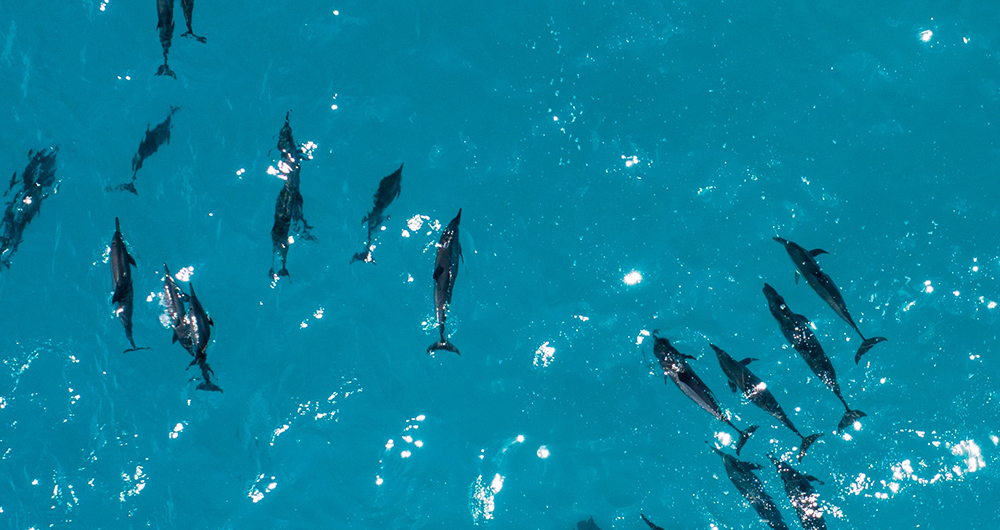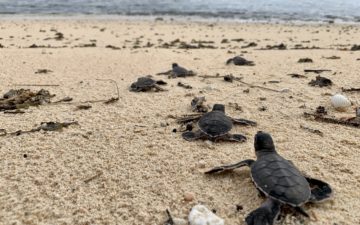January 9, 2018
Dear House Natural Resources Committee member:
We urge you to vote “no” on H.R. 3133, a bill that would gravely weaken the Marine Mammal Protection Act (MMPA), our nation’s commitment to the conservation of all marine mammals: whales, dolphins, seals, sea lions, walruses, sea otters, polar bears, and manatees.
Driven by Americans’ alarm over steep declines in marine mammal populations, Congress passed the MMPA with strong bipartisan support, and President Richard Nixon signed it into law in October 1972. The law protects individual marine mammals and their populations, and it applies to all people and vessels in U.S. waters, as well as American citizens and U.S.-flagged vessels on the high seas. As human uses of the ocean—shipping, fishing, energy development, defense, mining and tourism—expand, the need to prevent and mitigate harmful impacts to marine mammals is even greater now than when the MMPA was enacted 45 years ago.
Marine mammals are vital to the health of the oceans, and we still have much to learn about their roles since the dynamics of life in the sea are more challenging to study than those on land. For example, great whales—which include the largest animals in the history of life on earth—move nutrients through the ocean both vertically and horizontally across immense distances, supporting many other species of marine life.
Marine mammals also significantly benefit the U.S. economy. By keeping seaweed-eating sea urchins in check and enabling kelp forests to grow back and capture carbon dioxide, California sea otters are improving habitat for commercial fish species, protecting the coast from erosion by reducing the intensity of ocean waves, and drawing tourists with their charming antics. Whale-watching businesses thrive in every coastal region in the United States, with more than 450 whale-watching businesses, 5 million whale-watchers, and total revenues of nearly $1 billion in coastal tourism in 2008 (the most recent year for which comprehensive figures are available). Meanwhile, manatees draw visitors to Florida, especially in the winter when manatees congregate in warmer areas near freshwater springs.
Not one marine mammal found in U.S. waters has gone extinct in the 45 years since the MMPA became law, even as human activities in the ocean have dramatically increased. Furthermore, marine mammals are doing better in U.S. waters, with fewer species at risk of extinction here than in waters outside the United States. A number of species that had declined to perilously low levels have made significant progress toward restoration of their
populations under the protection of the MMPA, including harbor porpoises in the Atlantic and elephant seals on the West Coast. These species are improving thanks to the MMPA, thus avoiding the need for protection under the Endangered Species Act (ESA). The two populations of humpback whale that feed in the United States, as well as eastern North Pacific gray whales and the eastern population of Steller sea lions, have significantly improved with the additional assistance of the ESA.
Despite these successes, the MMPA is now under serious attack. H.R. 3133 seeks to promote controversial offshore oil and gas exploration, as well as other industrial activities in the ocean, by repealing protections that lie at the heart of the MMPA. The bill would gravely weaken the legal standards for issuing Incidental Harassment Authorizations (IHAs), prevent agency scientists from requiring almost any kind of mitigation, sharply limit monitoring of impacts on marine mammals, and impose a system of tight deadlines and automatic permit approvals that would make it difficult, if not impossible, for scientists to provide any meaningful review of potentially harmful activities. The negative consequences of these changes for marine mammal conservation would be profound.
The provisions that H.R. 3133 would undermine are essential to conservation under the MMPA. Harassment from industrial activities can compromise vital behaviors—such as foraging, breeding, and nursing—on which marine mammals depend to survive and reproduce. The MMPA ensures that the impacts of these activities are properly regulated and minimized. To weaken these core provisions for oil and gas exploration and other activities, as H.R. 3133 intends, would subject America’s marine mammals to needless harm and make it far more likely that their populations will become threatened or endangered in the future.
While no U.S. marine mammal species has gone extinct, and some have recovered, others are facing steep odds for their survival, including Bryde’s whales in the Gulf of Mexico, false killer whales in both Hawaii and the Western North Atlantic, Cuvier’s beaked whales in the northern Pacific, and the Pribilof Island/Eastern Pacific stock of northern fur seals. Many of these animals are at risk of dying from vessel collisions or entanglement in fishing gear, and all are facing the impacts of chronic stressors, including ocean noise and pollution, which undermine their ability to thrive and reproduce.
In closing, we ask for your support for this bedrock conservation law, and your “no” vote on H.R. 3133 in the House Natural Resources Committee markup tomorrow.
Sincerely,
The undersigned 108 businesses and organizations
1. Oceana
2. Acoustic Ecology Institute
3. Altamaha Riverkeeper
4. American Cetacean Society
5. American Cetacean Society Oregon Chapter
6. American Cetacean Society Student Coalition
7. Animal Welfare Institute
8. Better Pool Service
9. Blue Frontier
10.Blue Sphere Foundation
11.BlueVoice.org
12.Center for a Sustainable Coast
13.Center for Biological Diversity
14.Center for Whale Research
15.Cetacean Society International
16.Chukchi Sea Watch
17.Citizens Campaign for the Environment
18.Clean Water Action
19.Climate Law & Policy Project
20.Coffee Party Savannah
21.Conservation Law Foundation
22.Debris Free Oceans
23.Defenders of Wildlife
24.Dogwood Alliance
25.Earth Action, Inc.
26.Earth Law Center
27.Earthjustice
28.Eco Goddess
29.EcoStrings
30.Endangered Species Coalition
31.Environmental Caucus, California Democratic Party
32.Environmental Defense Fund
33.Finding 52 LLC
34.Food and Farming Forum
35.Friends of the Sea Otter
36.Gotham Whale
37.Greenpeace USA
38.Group for the East End
39.Gulf Restoration Network
40.Hackensack Riverkeeper
41.Hands Across the Sand / Land
42.Heirs To Our Oceans
43.Hip Hop Caucus
44.Humane Society Legislative Fund
45.Indivisible Fallbrook
46.Inland Ocean Coalition & Colorado Ocean Coalition
47.Inland Ocean Coalition / Colorado Ocean Coalition
48.Institute for Ocean Conservation Science at Stony Brook University
49.International Fund for Animal Welfare
50.International Marine Mammal Project of Earth island Institute
51.Kingfisher Eastsound Studio
52.League of Conservation Voters
53.LegaSeas
54.Marine Conservation Institute
55.Marine Mammal Alliance Nantucket
56.Marine Watch International
57.Mission Blue
58.Mize Family Foundation
59.Mystic Aquarium
60.National Audubon Society
61.National Parks Conservation Association
62.Natural Resources Defense Council
63.Nature of Hope
64.New England Coastal Wildlife Alliance
65.NY/NJ Baykeeper
66.Ocean Conservation Research
67.Oceanic Preservation Society
68.One Hundred Miles
69.One More Generation
70.Orange County Coastkeeper/ Inland Empire Waterkeeper
71.Orca Conservancy
72.Outer Banks Center for Dolphin Research
73.Pacific Environment
74.Pacific Marine Mammal Center
75.PAX Scientific
76.Power Shift Network
77.Public Watchdogs
78.Puget Soundkeeper Alliance
79.Regenerative Seas
80.Sailors for the Sea
81.San Diego Hydro
82.San Fernando Valley Audubon Society
83.SandyHook SeaLife Foundation (SSF)
84.Save Our Shores
85.Save The Bay
86.Save the Manatee Club
87.Save the Whales and Oceans
88.Seattle Aquarium
89.Shark Stewards
90.Sierra Club
91.Sierra Club National Marine Team
92.Sonoma Coast Surfrider
93.South Carolina Coastal Conservation League
94.Southern Environmental Law Center
95.Surfrider Foundation
96.Sylvia Earle Alliance / Mission Blue
97.The Dolphin Project
98.The Humane Society of the United States
99. The Ocean Foundation
100. The Whale Video Company
101. The Wilderness Society
102. Vision Power, LLC.
103. Washington Environmental Council
104. Weeks Consulting
105. Whale and Dolphin Conservation
106. Whale Scout
107. Wild Dolphin Project
108. World Animal Protection (US)







